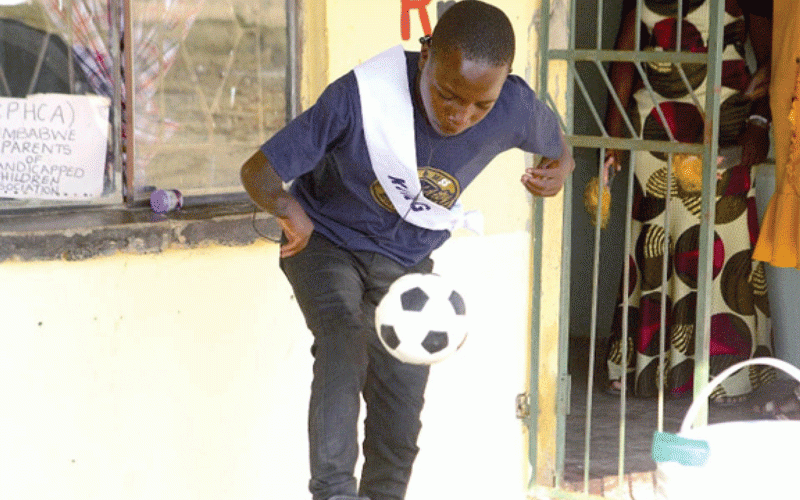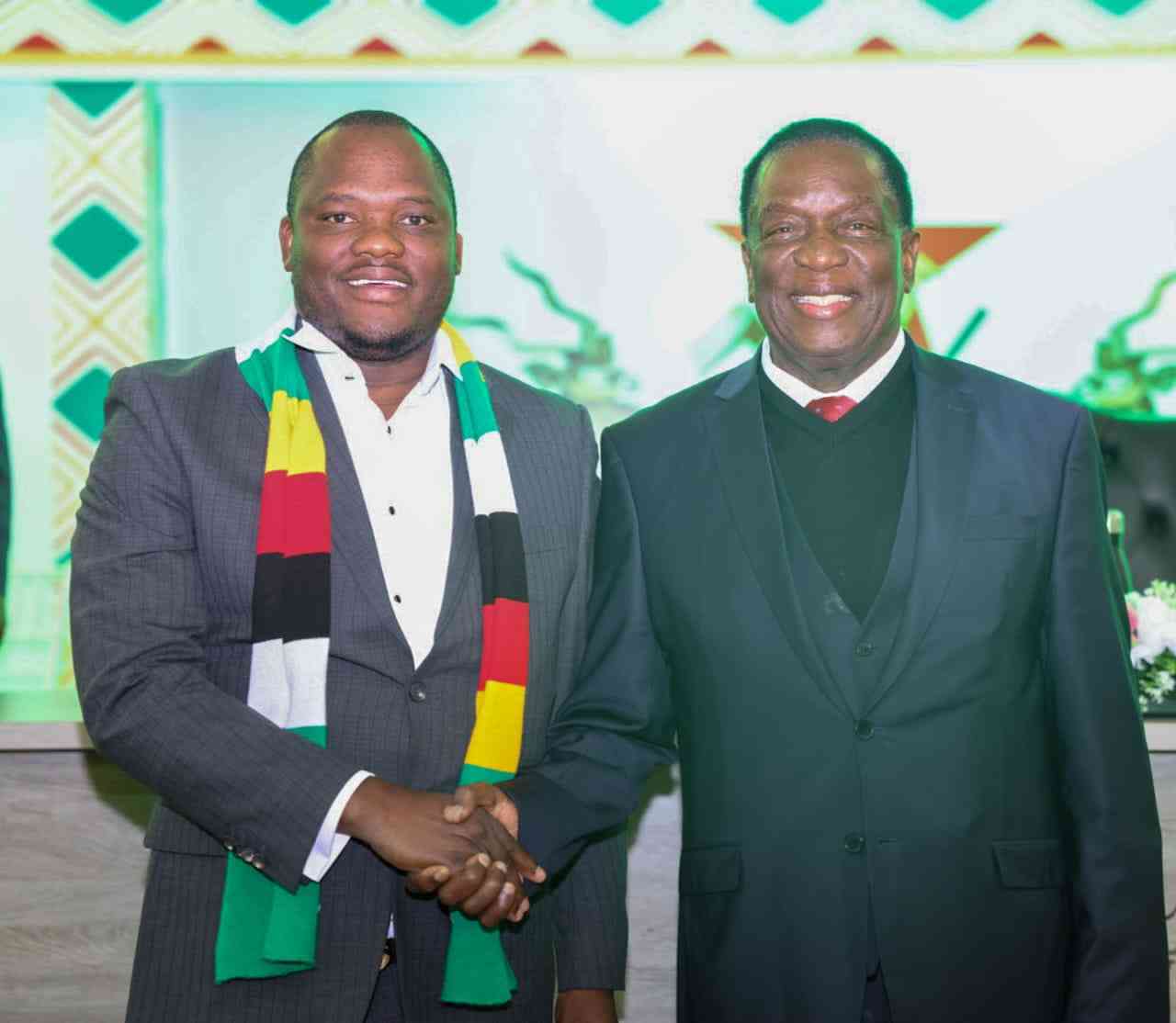
IN the face of pressing social, health and environmental crises, such as climate change, infrastructure deterioration, and rapid urbanisation, it is essential to recognise the potential of disability inclusion and management as a catalyst for creating healthier and sustainable communities.
By addressing the needs and rights of persons with disabilities in all their diversities (PWDDs), policymakers in Zimbabwe have a unique opportunity to enhance social and economic transformation while mitigating health, environmental and climate risks.
This opinion piece aims to highlight the critical importance of generating evidence-based reports laden with issues that advocate timely and regular improvements in policies and infrastructural development to foster a more inclusive society.
Climate change, crumbling infrastructure, and rapid urbanisation are prevailing phenomena that are presenting significant obstacles to populations, inclusive of PWDDs through increased vulnerability, health risks and inaccessible adaptation measures.
Climate change-related events such as extreme weather events, heatwaves and floods, much as they affect the majority population, they too, disproportionately affect PWDDs, who face challenges in skin infections, evacuations or finding safe shelter.
Climate change has a pronounced impact on the health of PWDDs, particularly those with respiratory diseases or heat sensitivity.
It is associated with a rise in air pollution due to factors like wildfires, increased dust storms and industrial emissions.
This can worsen respiratory conditions among individuals with disabilities, such as asthma or chronic obstructive pulmonary disease leading to more frequent and severe symptoms.
Heat-related respiratory distress through rising temperatures and heatwaves can trigger respiratory distress or exacerbate pre-existing respiratory conditions.
Further, high heat and humidity can make it more challenging for individuals with respiratory disabilities to breathe, leading to increased discomfort, heat exhaustion or heatstroke, which can have severe health consequences.
Medical experts are increasingly advocating for the implementation of climate-responsive health policies to address the intersection of climate change and public health.
These policies aim to proactively address the health impacts of climate change on vulnerable populations, inclusive of PWDDs.
Integrating climatic considerations into healthcare systems, promoting awareness and implementing preventive measures, these policies can enhance preparedness, reduce health risks and foster resilience in the face of a changing climate.
Experts observe that heat mitigation strategies such as the provision of cooling centres by ensuring access to shade and hydration are important; as they reduce the impact of high temperatures on individuals with heat sensitivity.
Public awareness campaigns can educate PWDDs, their caregivers, and healthcare providers about the specific risks and preventive measures related to respiratory diseases and heat sensitivity.
By recognising and addressing the unique vulnerabilities of PWDDs to climate change, policymakers and healthcare professionals can develop targeted interventions and adaptations.
The United Nations Convention on the Rights of Persons with Disabilities (UNCRPD) is an international treaty that promotes and protects the rights of persons with disabilities.
It is closely linked to the sustainable development goals as it aligns with the goal of leaving no one behind and achieving inclusive and sustainable development for all.
In view of this international convention, there is need to desist from developing inaccessible adaptation measures by policymakers through developing climate adaptation measures, such as the construction of barriers or relocation efforts, that do not consider the specific needs of PWDDs, leaving them more vulnerable and marginalised.
Zimbabwe’s disability laws and policies have shown progress in promoting the rights of PWDDs. The country has ratified the UNCRPD and enacted the Disabled Persons Act, the disability policy is also available, which recognises the rights of PWDDs.
However, challenges remain, including limited accessibility, inadequate implementation and gaps in social inclusion.
Further efforts are needed to ensure effective implementation and meaningful inclusion and empowerment of PWDDs in all spheres of society, aligning with the goals of SDGs.
The devastating Cyclone Idai of March 2019 serves as a stark reminder of the importance of considering the specific needs and rights of PWDDs in climate adaptation measures.
In the aftermath of the cyclone, it became evident that many of the relief efforts and infrastructure rebuilding initiatives did not adequately address the accessibility requirements of PWDDs.
This oversight left them even more vulnerable and marginalised, facing immense challenges in accessing essential services, emergency shelters and healthcare.
The experiences from Cyclone Idai emphasise the critical need for policymakers to prioritise inclusive planning and ensure that climate adaptation measures are designed to be accessible and inclusive for all, including PWDDs.
Deteriorating infrastructure everywhere, marked by gaping potholes, uncollected and unsightly dumpsites along major roads, broken sidewalks, lack of ramps at public and private institutions and inaccessible public transportation, all hinder the mobility and independence of travelling populations inclusive of PWDDs,
Shifting perceptions: From risk to resource
Disability inclusion requires a significant shift in societal perceptions, moving away from viewing disabilities as solely health or environmental risks. Instead, PWDDs should be recognised as valuable contributors and agents of change.
By embracing their skills, talents, and experiences, we can tap into a vast pool of untapped potential, fostering creativity, innovation and resilience within communities.
Creating accessible infrastructure
One crucial aspect of promoting disability inclusion is the creation of inclusive and accessible infrastructure. This includes accessible transportation, public spaces, buildings and information and communication technologies.
By implementing universal design principles, policymakers can ensure that infrastructure is usable by everyone, regardless of their abilities. This not only benefit PWDDs, but it also improves the overall liveability and functionality of communities.
Employment and economic empowerment
Creating inclusive employment opportunities is vital for economic transformation and social inclusion.
Policies should be enhanced to promote equal access to education, vocational training and job opportunities for PWDDs.
By recognising their skills and providing necessary accommodations, employers can tap into a diverse talent pool, fostering productivity and innovation. This, in turn, contributes to the economic growth and social cohesion of communities.
Health and well-being
Access to quality healthcare services and inclusive health policies are fundamental for the well-being of PWDDs. It is crucial to address barriers to healthcare, such as physical accessibility, communication, and stigma.
Additionally, targeted interventions and awareness campaigns can promote early detection, prevention, and treatment of disabilities, contributing to better health outcomes for PWDDs and the broader community.
Disaster preparedness and climate resilience
In the face of climate change and environmental risks, it is essential to consider the specific needs and rights of PWDDs in disaster preparedness and climate resilience strategies.
This includes accessible evacuation plans, early warning systems, and ensuring that shelters and relief efforts are inclusive.
By prioritising the inclusion of PWDDs in climate action plans, policymakers can build more resilient and adaptive communities.
Education and awareness
Promoting inclusive education and raising awareness about disability rights and inclusion are crucial components of transformative change.
By fostering inclusive educational environments at all levels, policymakers can empower PWDDs with the knowledge and skills to actively participate in society.
Additionally, awareness campaigns can challenge stereotypes, reduce discrimination and foster a culture of inclusivity.
Conclusion
In the face of community social, health and environmental crises, disability inclusion and management hold immense potential for transforming challenges into opportunities.
By reframing and rethinking disability as a resource and embracing the diverse abilities and contributions of PWDDs, Zimbabwe can create healthier and sustainable communities.
Timely improvements in policies and infrastructure, encompassing accessible infrastructure, inclusive employment, healthcare services, climate resilience and education, are vital for realising this vision.
It is imperative for policymakers to prioritise disability inclusion and work collaboratively with stakeholders and PWDDs to create a society where everyone can thrive, regardless of their abilities.
By doing so, Zimbabwe can lead the way towards a more inclusive, equitable and sustainable future.
Tonderayi Matonho is a journalist exploring disability inclusivity, participation, integration and management debate across communities. He can be reached at 263-777 052 658, Email: tmatonho@gmail.com.







